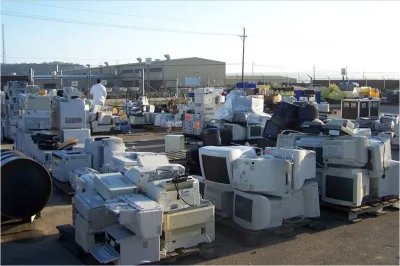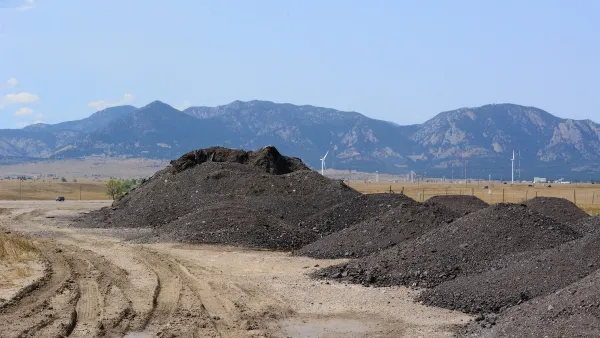When a watchdog group partnered with MIT to install trackers on a batch of e-waste, the results were sobering. Much of the haul left the country, ending up in Asian junkyards where unknowing workers are exposed to toxic substances.

Some hard facts, usually overlooked: "Dead electronics make up the world's fastest growing source of waste. The U.S. produces more e-waste than any country in the world. Electronics contain toxic materials like lead and mercury, which can harm the environment and people. Americans send about 50,000 dump trucks worth of electronics to recyclers each year."
This story for KUOW covers Seattle activist Jim Puckett, whose Basel Action Network recently "partnered with the Massachusetts Institute of Technology to put 200 geolocating tracking devices inside old computers, TVs and printers." The organization has released a video about the project.
According to Puckett's findings, many so-called recyclers in the United States are in fact exporters who don't care about what happens on the other end. "In a bear market for commodities, exporting waste is more profitable than processing it domestically. Recyclers simply fill a shipping container with whole electronics, and an e-waste broker arranges for pick-up."
In some cases, the conditions in developing world junkyards are deplorable. From the article: "Villagers desoldered circuit boards over coal-fired grills, burned plastic casings off wires to extract copper, and mined gold by soaking computer chips in black pools of hydrochloric acid."
Puckett's organization is named after the Basel Convention, an international treaty to prevent developed nations from dumping hazardous waste elsewhere in the world. The United States has not ratified the treaty, nor does it have any federal laws banning e-waste exports.
Of course, not all recyclers are engaging in this problematic activity: "Over the years Puckett's attempts to quantify and draw attention to exported electronic waste has drawn criticism from U.S. recyclers who say the problem has been exaggerated." But enough is going on to justify considerable environmental and human rights concerns.
FULL STORY: On the trail of America's dangerous, dead electronics

Analysis: Cybertruck Fatality Rate Far Exceeds That of Ford Pinto
The Tesla Cybertruck was recalled seven times last year.

National Parks Layoffs Will Cause Communities to Lose Billions
Thousands of essential park workers were laid off this week, just before the busy spring break season.

Retro-silient?: America’s First “Eco-burb,” The Woodlands Turns 50
A master-planned community north of Houston offers lessons on green infrastructure and resilient design, but falls short of its founder’s lofty affordability and walkability goals.

Test News Post 1
This is a summary

Analysis: Cybertruck Fatality Rate Far Exceeds That of Ford Pinto
The Tesla Cybertruck was recalled seven times last year.

Test News Headline 46
Test for the image on the front page.
Urban Design for Planners 1: Software Tools
This six-course series explores essential urban design concepts using open source software and equips planners with the tools they need to participate fully in the urban design process.
Planning for Universal Design
Learn the tools for implementing Universal Design in planning regulations.
EMC Planning Group, Inc.
Planetizen
Planetizen
Mpact (formerly Rail~Volution)
Great Falls Development Authority, Inc.
HUDs Office of Policy Development and Research
NYU Wagner Graduate School of Public Service




























